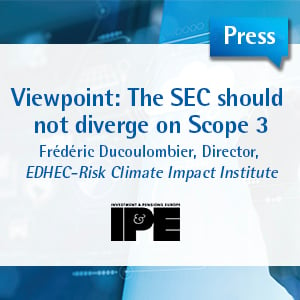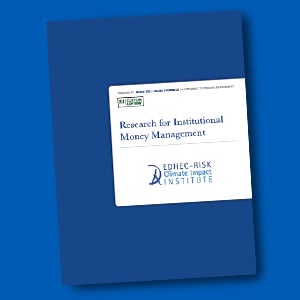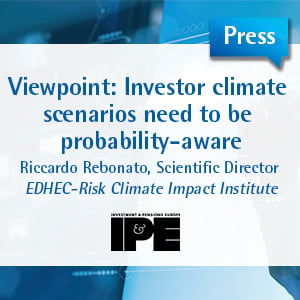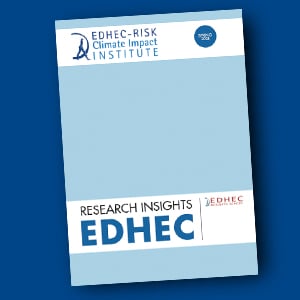
Education
bring research advances and state-of- the-art practices into the practitioner’s portfolio of skills
News

25-04-2024
Rob Arnold discussed the imperative of enhancing infrastructure resilience at OECD...
Rob Arnold, Sustainability Research Director at EDHEC-Risk Climate Impact Institute, has been invited to take part in a panel discussion on "Reporting standards to address resilience for investors” at the OECD Infrastructure Forum: Infrastructure for Resilience, which took place on April 9 and 10 in Paris.
Other panelists included Christophe Dossarps, CEO, Source; Nancy Saich,...

03-04-2024
Spring 2024 EDHEC-Risk Climate special...
Our first Research Insights supplement for Investment & Pensions Europe (IPE) provides science-based answers to pressing investment questions in relation to climate...

25-03-2024
March 2024 EDHEC-Risk Climate special...
Our first Research for Institutional Money Management supplement for Pensions & Investments (P&I) provides science-based answers to pressing investment questions in relation to...














